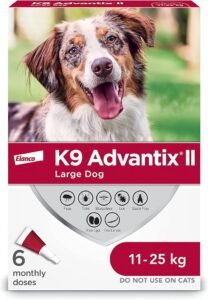Your cat or dog ingested caffeine. As a pet owner, this is a frightening scenario and one for which you might not be equipped. Don’t panic. In this article, we examine what happens when a pet gets into caffeine. We also explain how you can best respond if this startling scenario manifests itself.
Is Caffeine Okay For Pets?
The short answer is no. Though caffeine actually affects the body of an animal in much the same way as it does a human, the effects are amplified to extreme levels. This is mostly due to the fact that pets weigh so much less than humans.
A ten-pound cat slurping down a cup of coffee will suffer much more exaggerated side effects than a 150-pound human would. In the best case scenario, coffee will cause your pet extreme hyperactivity and probably a good deal of anxiety. In the worst case scenario, it can result in an expensive trip to the vet, or even death.
In other words, if you are wondering if you can or should give your pet caffeine on purpose, the answer is a resounding no.
What to Do If Your Pet Has Consumed Caffeine
If you’re reading this article because your pet has already consumed some caffeine, it’s important not to panic. The first thing you should do is contact your veterinarian or even animal poison control.
Time is of the essence. Caffeine takes about thirty minutes to reach its highest toxicity level, so the sooner you can consult with a knowledgeable professional, the better off you will be.
The person you speak with will need to know several things about your cat or dog, including their size and breed. They may also want to know how much coffee or caffeine the animal has ingested. The more information you’re able to give them, the more effective they can be in their assistance.
Signs and Symptoms of Caffeine Consumption in Pets
The signs and symptoms experienced by your pet will depend somewhat on their size, and on the amount of caffeine they have consumed.
However, if you’re suspicious that your pet may have ingested some coffee, here are a few things to look out for:
- Restlessness
- Agitation
- Rapid or irregular heartbeat
- Extreme hyperactivity that is uncharacteristic of their usual behavior
- Vomiting
- Seizures
With animals, any major sudden change in behavior is usually a sign that something is wrong. The above-listed symptoms will take effect within one hour of caffeine consumption, and can last for up to six hours.
If you suspect that your pet may have consumed caffeine, try to feel their heartbeat right away. Of all the symptoms listed above, an erratic heartbeat may be the most indicative of serious potential consequences.
Naturally, if your pet has a seizure in any situation, immediate medical attention is also necessary.
What the Vets Will Do
When you get into the veterinarian’s office, their approach will likely be to try to induce vomiting. Though it may be tempting to do this independently on the home front, conventional wisdom warns against this approach.
If it’s done the wrong way, chances are very high that you will injure your pet in attempts to induce vomiting. Failed efforts may even result in serious long-term health complications such as pneumonia. As such, the induction of vomiting should always be regarded as a last resort.
Prevention
Prevention is the best way to mitigate the risk that caffeine poses to your pets. Keep your coffee grounds well out of reach, and ensure that your pets do not have access to your coffee cups.
This may be easier said than done, especially if you have curious cats. However, a little bit of vigilance will go a long way towards keeping your pets safe and healthy.
Conclusion
It’s always scary when something is wrong with your pet. If your cat or dog has gotten into caffeine, the way you respond can make all the difference. Contact a professional immediately to ensure a fast recovery.











